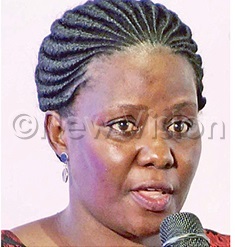'Women reluctant to register for oil jobs'
The register aims at increasing participation of Ugandans in the industry, as a requirement of the local content policy.
Oil and gas
The Petroleum Authority of Uganda (PAU) has expressed concern that only a handful of female graduates in the country have registered for the oil and gas jobs. According to the PAU statistics, only 540 female graduates against 2,176 male have registered with the National Oil and Gas Talent Register (NOGTR).
The NOGTR is an electronic government information management system, which is intended to capture the demand and supply of Ugandan manpower in the oil and gas sector.
The register aims at increasing participation of Ugandans in the industry, as a requirement of the local content policy.
Besides petroleum engineers, the register includes fields such as banking and finance, agriculture, technology, law, engineering, business and commerce, medical and health services and ethnobotany (the study of a region's plants and their practical uses through the traditional knowledge of local culture and people).
Other areas include education, hospitality, wireless route and switch certification in machining and fitting, environmental practitioners, catering and hotel management.
Although the NOGTR has been operational since February 1, 2019, it has not attracted female skilled workers.
"The platform is open to all Ugandans, both working in Uganda and abroad. However, it has come to our attention that very few female graduates have registered," Betty Namubiru, the national content manager at PAU, said.

She said PAU will continue to use all the available media platforms to encourage all Ugandans to register, including female graduates. The local content regulations require international oil companies (IOCs) to employ a specific percentage of Ugandans across all levels.
For instance, at least 70% Ugandans at management level, 60% at a technical level and 95% at other levels.
"The register will serve as a pool from where companies will search for competent Ugandans to work. We ask everyone to take it seriously," Namubiru said.
Lawyer Kiryowa Kiwanuka, a member of the PAU board, urged Ugandans to register, noting that "it will be used as a tool to monitor the employment of Ugandans in the sector".
They made the remarks recently during the National Oil Symposium 2020 at Makerere University. Organised by the Operation Wealth Creation and Makerere University, the symposium was intended to discuss and sensitise Ugandans on the potential contribution of the oil and gas sector to the economy.
It is estimated that 190,000 jobs (both direct and indirect) will be created in the oil and gas sector for Ugandans. Prof. Eria Hisali, the principal of Makerere University College of Business and Management Sciences, warned that the delays in concluding oil investment decisions will hurt the sector.
He said the protracted negotiations are costly to the Government and international oil companies, and that it renders Uganda an unfavourable investment environment.
"The more we delay to finalise oil deals, the more our country will be regarded as a high-risk country, which will keep us from attracting investments in the sector," Hisali said.
"We should not look at the capital gains tax, but rather focus on investments and contracts which will come for Ugandans. The country will benefit more from the contracts rather than the capital gains tax," he added.
How to register
The system was designed in such a way that an applicant submits their name only once and they get a password upon registration. Applicants are required to provide bio-data, including parents, places of birth as well as origin and tribe.
The other required information is the education background, work experience, competencies and areas of interest.
PAU intends to integrate the oil jobs register with other existing infrastructure, such as the National Identification and Registration Authority (NIRA) to verify the bio-data presented by applicants. It will also be linked with the Crane Database and the Labour Market Information System (LMIS) used by the energy and labour ministries respectively.